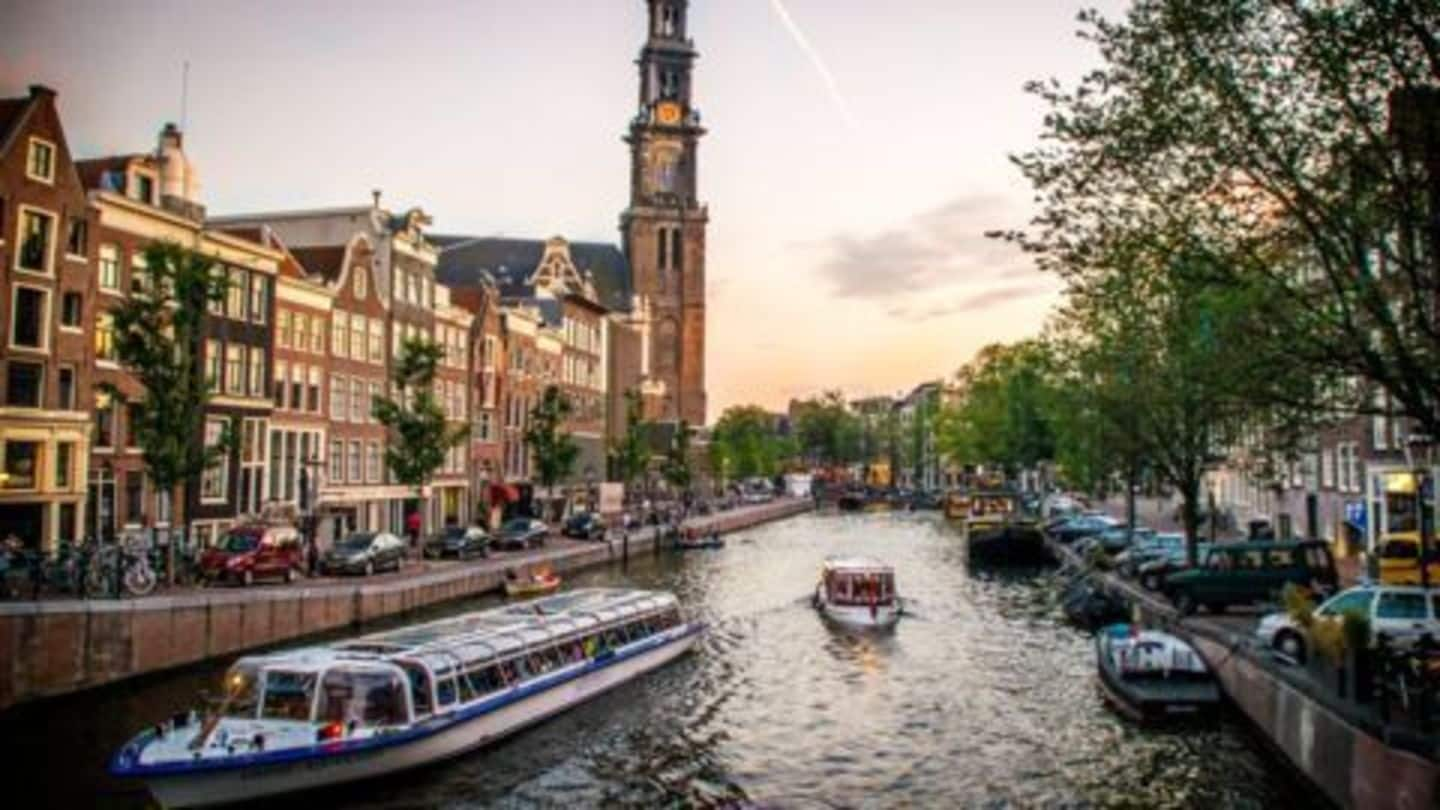
Amsterdam to launch self-driving Roboats in 2017
What's the story
Amsterdam's canals are set to witness 'Roboats' - the world's first driverless boats - that will be launched in 2017. The boats offer enormous opportunities, from moving goods/people to transforming into pop-up bridges. Researchers at Massachusetts Institute of Technology (MIT), Amsterdam Institute for Advanced Metropolitan Solutions (AMS), Delft University of Technology (TUD), and Wageningen University and Research (WUR) announced the five-year research project.
Quote
Autonomous vehicles
Amsterdam Institute for Advanced Metropolitan Solutions (AMS) said in a statement, "While the first prototypes of self-driving cars are taking to the road, Amsterdam ushers in a new chapter in the international push for autonomous vehicles."
Research
MIT donated $22.3 million for the project
MIT has reportedly donated $22.3 million for the Roboat research project. Technology will be leveraged from MIT, Wageningen University and Research, and Delft University of Technology. Though Roboats don't exist yet, its concept images show it ferrying passengers around, carrying sensors to monitor water quality, and moving cargoes. About $27 million have been disbursed to Amsterdam Institute for Advanced Metropolitan Solutions for the project.
Roboats
Roboats can stack together to form temporary bridges
MIT said the boats could stack together to form temporary bridges across canals to avoid crowding during busy events. AMS Scientific Director Arjan van Timmeren said Roboats can carry out research on underwater robots, which can detect water-borne diseases at a much earlier stage. He added the Roboats could be used to rid the canals of the floating waste in an efficient manner.
Underworlds
Mapping the spread of diseases
Roboat project would build upon the work done by MIT's initiative called Underworlds. It aims to create a "predictive model for potential outbreaks" by extracting sample data from human waste. The project, partnering with Boston in the US, will also explore the commercial application of the Roboat technology. Rising sea levels triggered by global warming have increased the need for this "floating" technology.
Amsterdam
Ideal place for developing Roboat
Researchers said Amsterdam was the ideal place for developing the driverless Roboat as there are around 165 canals in the city spread over a length of 50 kilometers. In 2010, the 400-year-old canal ring around the Netherlands' capital was declared a UNESCO World Heritage Site. The canal ring is a transport and recreational mainstay in Amsterdam where canal cruises are the largest tourist attraction.
Quote
Amsterdam Vice Mayor Kajsa Ollongren's statement
"It is a fantastic opportunity for Amsterdam to have the world's most prominent scientists work on solutions with autonomous boats in this way is unprecedented, and most fitting for a city where water and technology have been linked for ages."